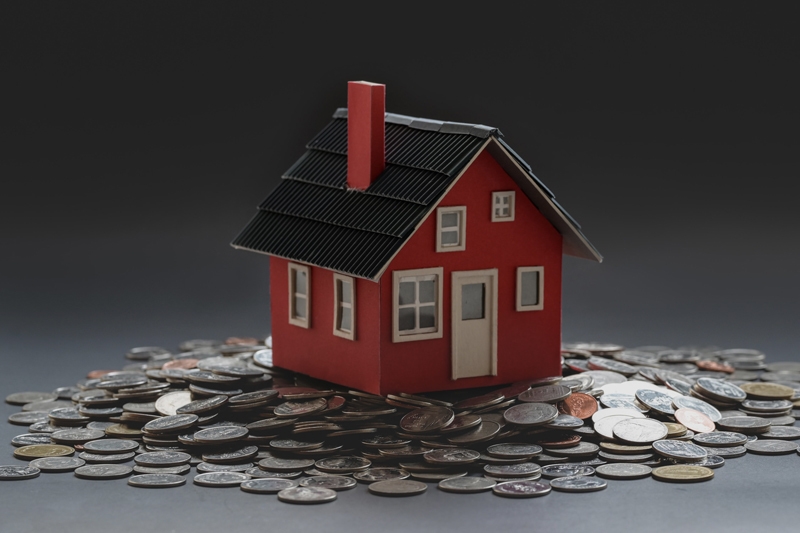As millennials increasingly enter the housing market, a new question looms: can you buy a house with student loan debt? According to the National Association of Realtors (NAR), a lot of home buyers have student debt. In fact, a full 41% of first-time home buyers do. So if you’ve been operating under the assumption that student loans mean you can't become a homeowner, think again!
Before rushing to your mortgage advisor, though, there's a few things you should consider. Here's what you need to know about student loans and buying a house.
Do student loans affect buying a house?
As we’ve noted, you can definitely buy a house with student loans - and many people do. The next logical question is, how do your loans impact your home buying experience?
The answer: student loans can impact your debt-to-income ratio, credit score, and the amount you’re able to save for a down payment, and all of these factors in turn can impact the mortgage rate and home loan you can qualify for. Let’s further break that down.
Debt-to-income ratio
Anytime you go to buy a home, you’ll discuss budgeting with both your Realtor and your mortgage advisor. The more debt you have in proportion to your income, the less house you can generally afford. In other words, student loans may mean that you qualify for a less expensive home than you otherwise could afford with your income level.
Debt-to-income level, or DTI, is based on your monthly debt payments - and this covers everything from car payments to credit cards. Typically lenders prefer a DTI of 36% or less, with 43% being the highest DTI a borrower can have while still qualifying for a mortgage. However, this number can be higher with government-backed mortgages (like the FHA).
“Having a student loan will not stop you from getting approved for a mortgage. Student loan payments will be calculated like any other debt when applying for a mortgage,” explains experienced Mortgage Advisor Ray Garville. “Like other obligated payments, student loan payments get counted in what's called the debt-to income-ratio for determining how much of a mortgage we will qualify for. When there is a monthly payment reported on a credit report, that is the payment that will be used.”
Credit score
Do student loans affect credit scores? They can. How seriously you’ve taken your loan obligation up until now will have impacted your credit score. If you’ve made your student loan payment on time every month, you should have a higher credit score. If you’ve missed payments - or even defaulted on some of them - your score will be much lower. A low credit score means higher mortgage rates, which means higher monthly payments.
“Student loan payments are reported to the credit agencies like other debts and have an effect on a credit score; if there are late payments it will have a negative effect on a credit score, and when paid as agreed it will have a positive effect on a credit score,” notes Garville.
Down payment
Traditionally, it’s recommended that homeowners pay 20% of their home's value at closing. This down payment, as its called, helps keep mortgage rates and monthly payments reasonable and allows homeowners to avoid the additional fee of Private Mortgage Insurance (PMI). Millennials who have had to pay off their loans while starting off at entry-level jobs don’t always have a lot of cash in the bank when it comes time to buy a home.
However, first time home buyer programs typically allow home buyers to put down as little as 5% at closing - so this may not be as big an issue as you think it is.
Should I pay off debt before buying a house?
Potential home buyers often wonder whether they should pay off their student loans or buy a house. There is no right answer here, especially because the amount of debt you have, how quickly you can pay it off, and the type of home you want to qualify for all impact this decision.
- The reason many homeowners decide to buy a home while paying off student loans has to do with looking at their overall loan picture. Every year, the cost of housing tends to rise, as do interest rates. If you pay off $20,000 in student debt, but the price of your potential home goes up $20,000 over the two years you’re saving, then your overall loan burden hasn't shifted much.
- If you have high-interest loans, though, it may make sense to pay these off first.
- Since having a more substantial down payment will help keep your mortgage rate lower -and even half a percentage rate can equate to thousands of dollars over the lifetime of your loan - it can make more sense to save for the downpayment instead of your student loan.
- If you delay buying a home, you’ll probably be paying to rent instead. When you pay your mortgage, that’s equity you get to keep. When you rent, you’re still paying off a mortgage - except it’s your landlords.
Buying a house with student loans in deferment
If you have deferred student loans - which means that you are back in school, in the military, or can demonstrate economic hardship (federal student loans were also deferred for 2020/21 due to COVID) - you may be wondering how this impacts your ability to buy a home.
If you are opting for an FHA loan: “In general, FHA lenders are required to use 1% of the student loan balance as part of the monthly obligations when determining whether the borrower meets the maximum debt to income ratio of 43%.”
In other words, if you owe $20,000 in student loans, lenders will consider 1% of that - or $200 - to be your monthly loan obligation, even if you’re not required to pay any of it down right now.
Conventional loans are often more lenient than FHA guidelines, so if you carry a higher student loan debt, you may find better success there.
Having student loans and buying a house is normal
Student loans are simply a form of debt, and debt in itself does not hold people back from buying homes: in fact, most people buying homes have some form of debt, whether it’s student debt, car payments, or credit card bills. All you have to do is keep your credit score up, evaluate your debt-to-income ratio to see how much house you can afford, and talk to a qualified, top Realtor about what sort of home can fit your needs and budget.
Find Out More About:



